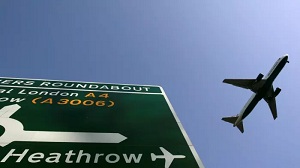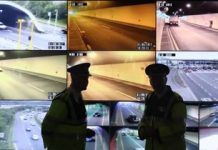British Airways will become one of the first airlines to replace its boarding gate staff with automated biometric technology as it tries to speed up the more humdrum parts of travel through London Heathrow. Passengers will be able to board their flights at Europe’s busiest airport without staff interaction, using a facial recognition system that can instantly and accurately authenticate identity to remove the need for manual checks. The British group is the latest airline to adopt new technology to ease the chore of flying as automated processes are introduced in airports around the world.
“Our customers have told us that they want the ability to simplify and speed up their journeys through the airport,” said Troy Warfield, BA’s director of customer experience. BA has activated three biometric gates at Heathrow’s Terminal 5 , and will equip 36 gates with the technology by the end of the summer.
The facial recognition system will initially serve domestic airline passengers after a successful trial last year, with a plan to expand to international flights later in the year, according to BA. “There is a general trend towards this sort of automation technology, but we will be one of the first to implement this at boarding,” BA said. The system captures a passenger’s face via cameras at the security check. When the person arrives at their boarding gate, a second set of cameras will authenticate their face with their boarding pass by matching the data captured at the earlier security screening. In 2016, a record 75.7m passengers passed through Heathrow — 1 per cent higher than in 2015. “The addition of self-boarding gates, along with self-serve bag drop points, are just two of the ways in which we are investing in areas our customers value most,” Mr Warfield said.
Dutch airline KLM is also running a three-month trial of facial recognition technology at Amsterdam’s Schiphol Airport, while Charles de Gaulle airport in Paris is testing similar systems to ferry passengers through immigration after terror attacks in Nice and Paris slowed down the security screening process. The Japanese have been conducting trials in two airports since 2014. The Australian government also announced that it would adopt a fully automated system to admit travellers into the country by 2020, with immigration officers being replaced by software.








